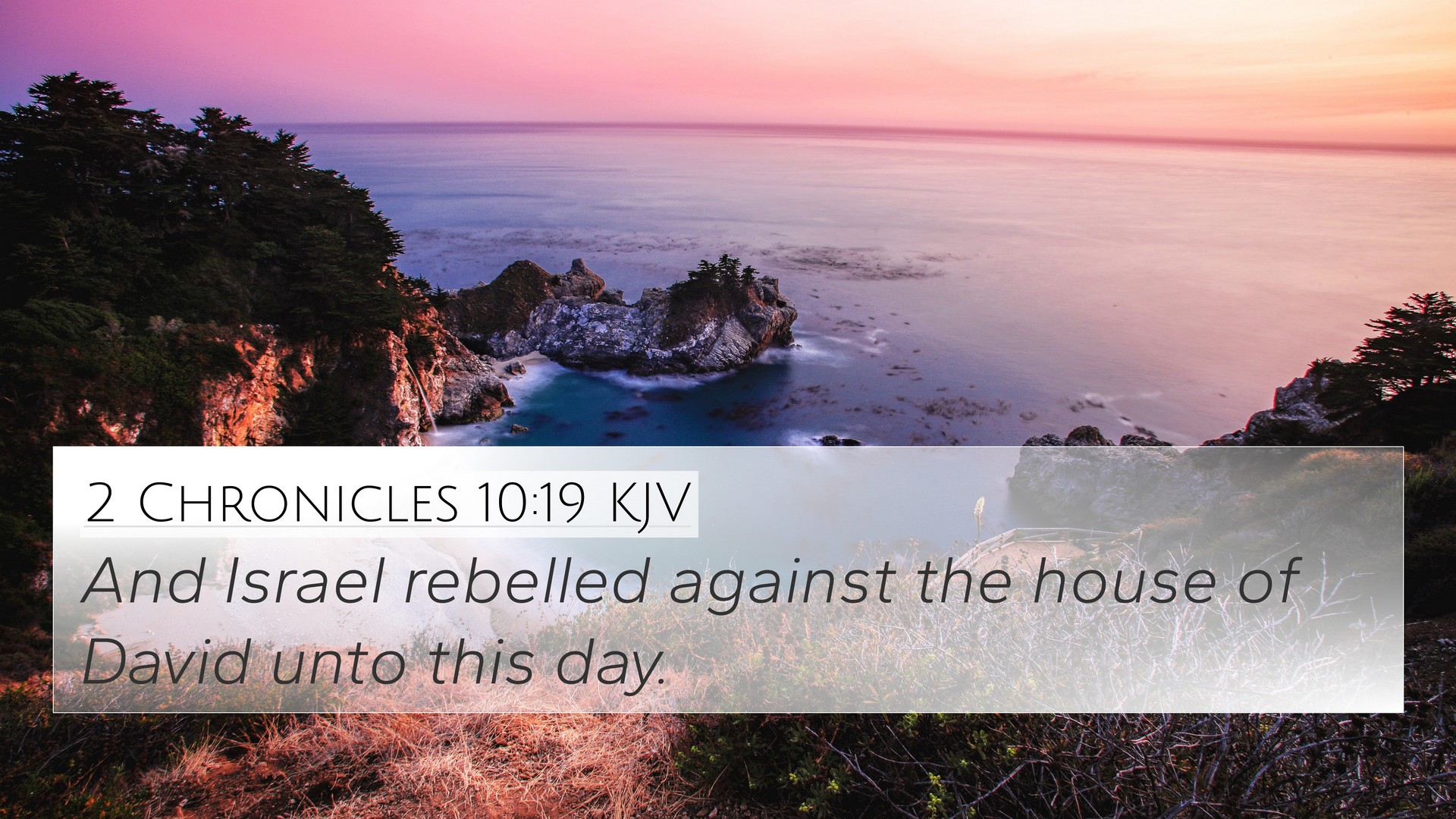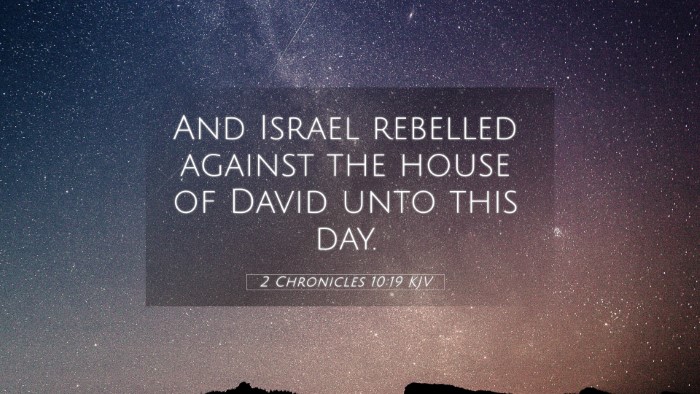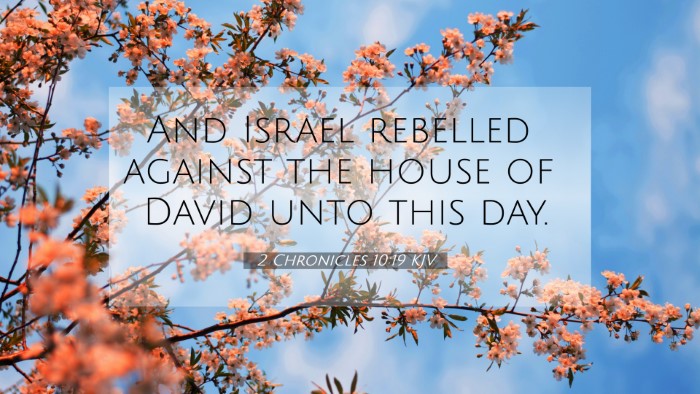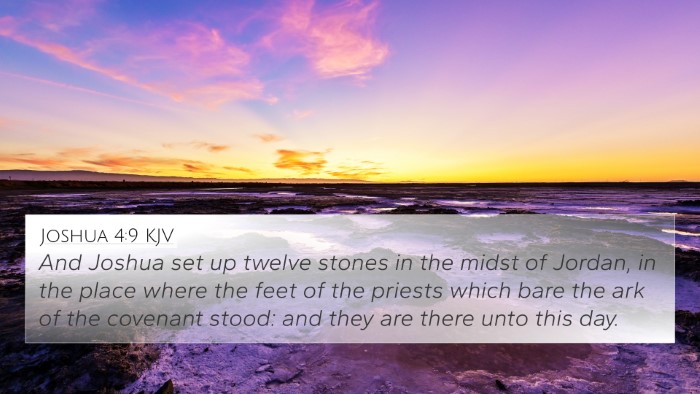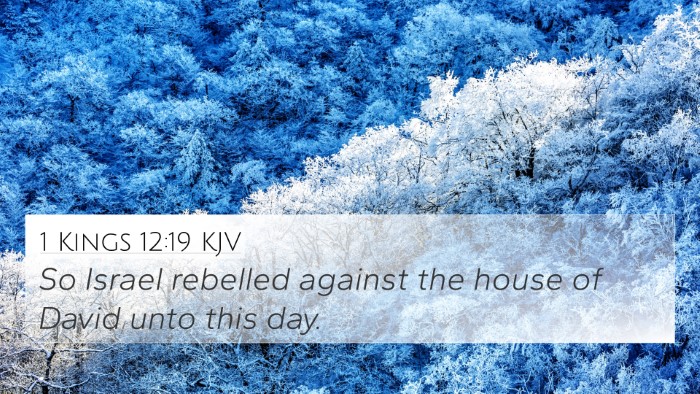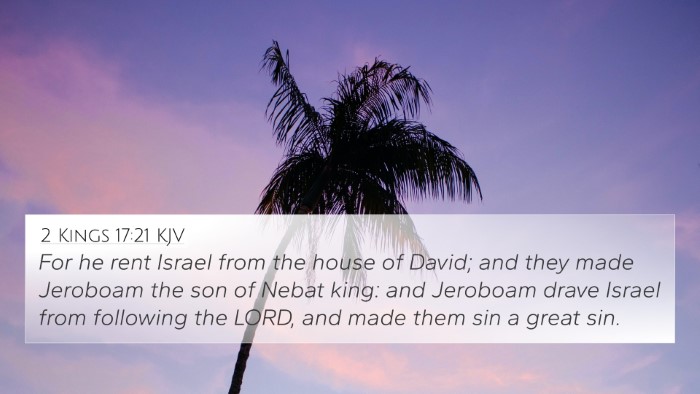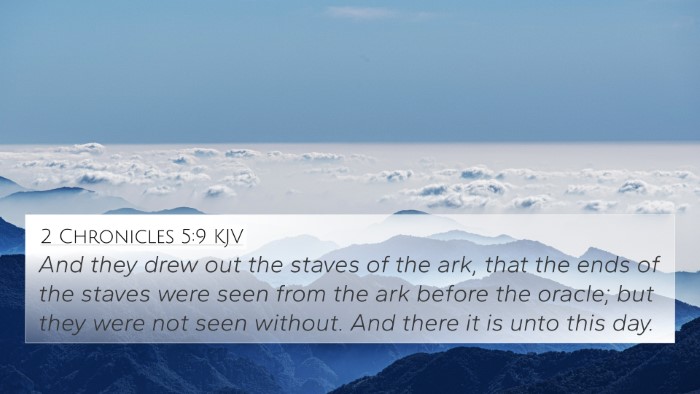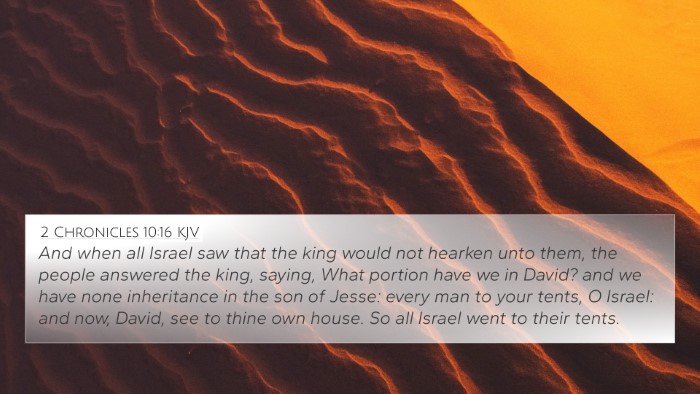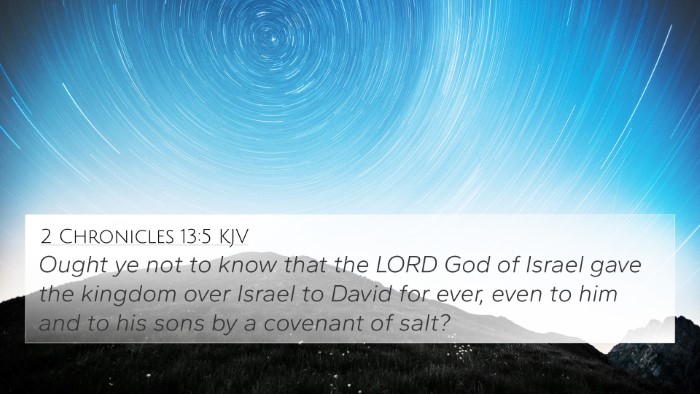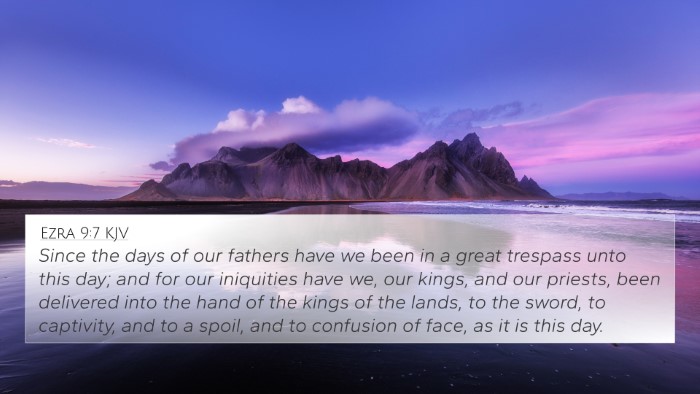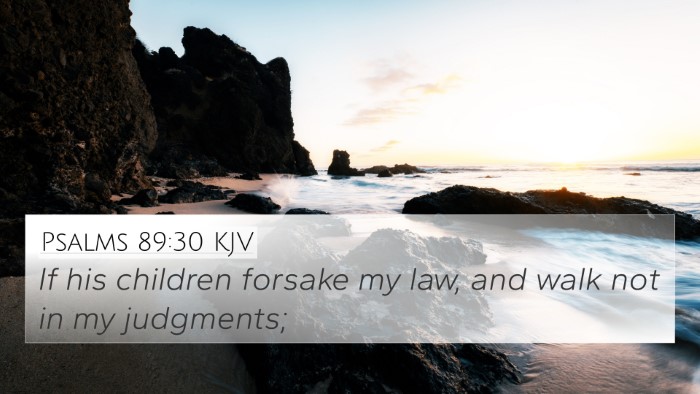Understanding 2 Chronicles 10:19
2 Chronicles 10:19 reads: "So Israel rebelled against the house of David unto this day." This verse captures a pivotal moment in the history of Israel and Judah, where the divided monarchy's origins are starkly illustrated, leading to significant theological and historical implications.
Historical Context
This verse is situated in a broader narrative focusing on Rehoboam's ascension to the throne and the subsequent division of the kingdom. Following the reign of King Solomon, the people's grievances regarding harsh labor and taxation led to a rejection of Rehoboam's rule, thus reflecting the beginning of a critical schism in Israelite history.
Interpretations and Analysis
Drawing from various public domain commentaries, we uncover several layers of meaning within this verse:
- Matthew Henry: Emphasizes the divine sovereignty and the fulfillment of God's word through the rebellion of Israel against Rehoboam. Henry suggests that this was part of God's plan to discipline the people for their disobedience as a portion of God's judgment.
- Albert Barnes: Notes the significance of rebellion not only as a political movement but as a profound spiritual downfall. Barnes argues that this rebellion was indicative of the people's rejection of God's chosen lineage, thereby sowing seeds for further conflict and division.
- Adam Clarke: Highlights the consequences of leadership and the importance of wise counsel. Clarke underlines that the rejection of wise advice led the nation to instability, signifying that proper governance aligned with God’s principles is essential for unity.
Insights into Themes
The overarching theme in 2 Chronicles 10:19 revolves around leadership, rebellion, and consequence. The verse acts as a fulcrum for understanding the complex relationships within Israel's monarchy and their connection to God's covenant with His people.
Bible Verse Cross-References
To enhance our understanding of 2 Chronicles 10:19, we can explore related scriptures that illuminate its meaning:
- 1 Kings 12:16: This verse depicts the moment when Israel rejects Rehoboam, expressing their grievances and the choice of the northern tribes to abandon the Davidic line.
- 2 Samuel 20:1: Provides insight into similar rebellious behavior displayed by the people against King David, reflecting the recurring theme of civil discord in Israelite history.
- Psalm 78:67-68: Highlights God's chosen leaders and His rejection of others, hinting at the importance of covenant fidelity and its implications for national unity.
- Jeremiah 3:10: Addresses the spiritual unfaithfulness of Israel, tying the rebellion against leadership to a greater rebellion against God Himself.
- Hosea 8:4: Reflects on the consequences of Israel’s rejection of rightful leaders, aligning with the themes of judgment and division present in 2 Chronicles 10:19.
- Ezekiel 37:22: Foretells a future restoration of Israel under one king, contrasting the current division and reinforcing the hope for reunification in the messianic age.
- Matthew 12:25: The New Testament echoes the theme of division within a kingdom, inviting reflection on the broader implications of disunity stemming from unfaithfulness to God's leadership.
Practical Application
Through this analysis, 2 Chronicles 10:19 teaches valuable lessons about the nature of authority, the importance of seeking wise counsel, and the enduring consequences of rebellion. Believers today can draw parallels with this verse by examining the nature of their own leadership and relationships, as well as their fidelity to God's principles.
Thematic Bible Verse Connections
In light of the narrative surrounding 2 Chronicles 10:19, we observe thematic connections across various passages:
- Theme of Leadership: 1 Peter 5:2-3 cautions leaders to shepherd God's flock willingly, an echo of the responsibilities outlined in the Old Testament.
- Consequences of Rebellion: Galatians 6:7 serves as a reminder that we cannot mock God; every action yields consequences, relevant to Israel's choice to rebel.
- Spiritual Unfaithfulness: Revelation 2:5 urges Christians to return to their first love, parallel to Israel's need to restore fidelity to their covenant with God.
Conclusion
The insights gleaned from 2 Chronicles 10:19 reveal the complexities of human leadership and divine sovereignty. The reflections from esteemed commentators provide a richer understanding of the implications of rebellion against God’s chosen leadership. Through the cross-references explored, we can see the continuity of themes throughout Scripture, supporting a deeper engagement with the messages woven throughout the biblical narrative.
As you continue your study, consider utilizing tools such as a Bible concordance or a Bible cross-reference guide to uncover further connections between verses and themes. Explore the cross-referencing Bible study methods to deepen your understanding and engage in meaningful inter-Biblical dialogue.
